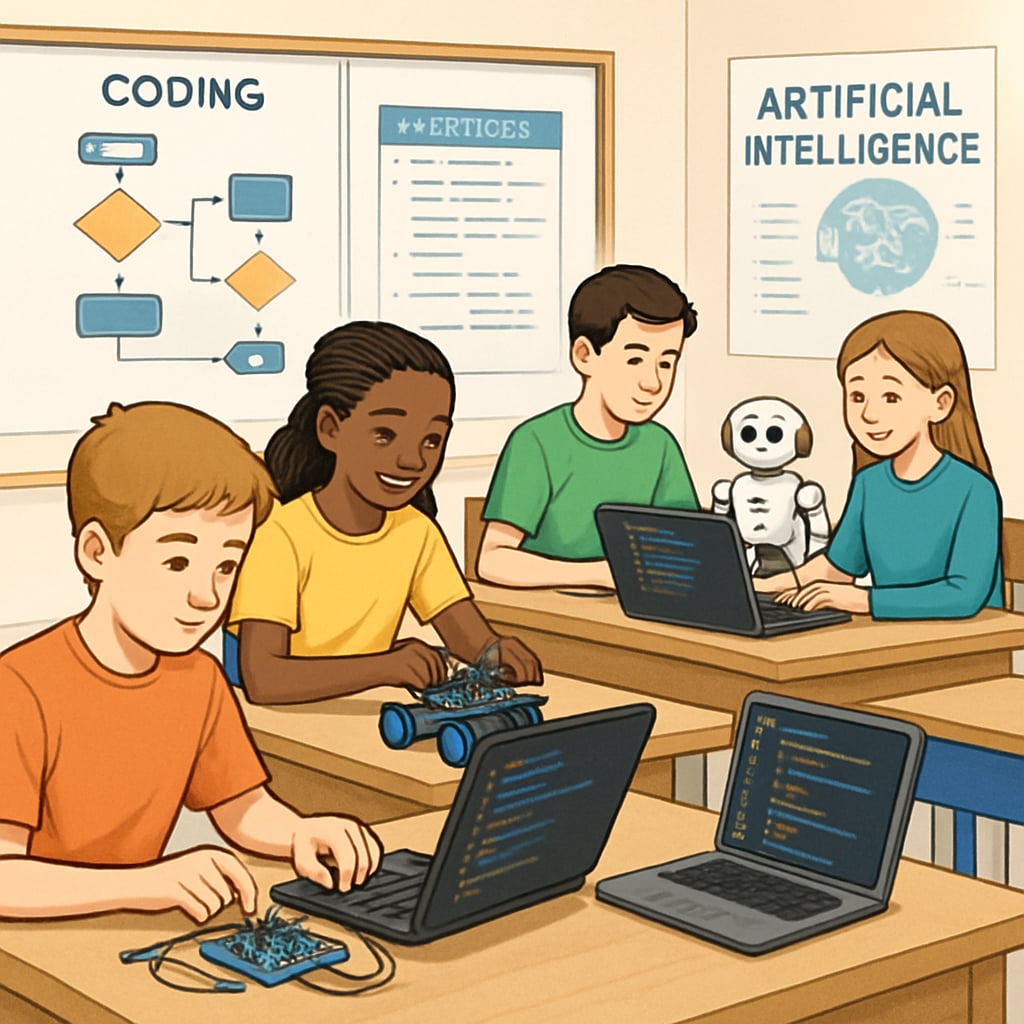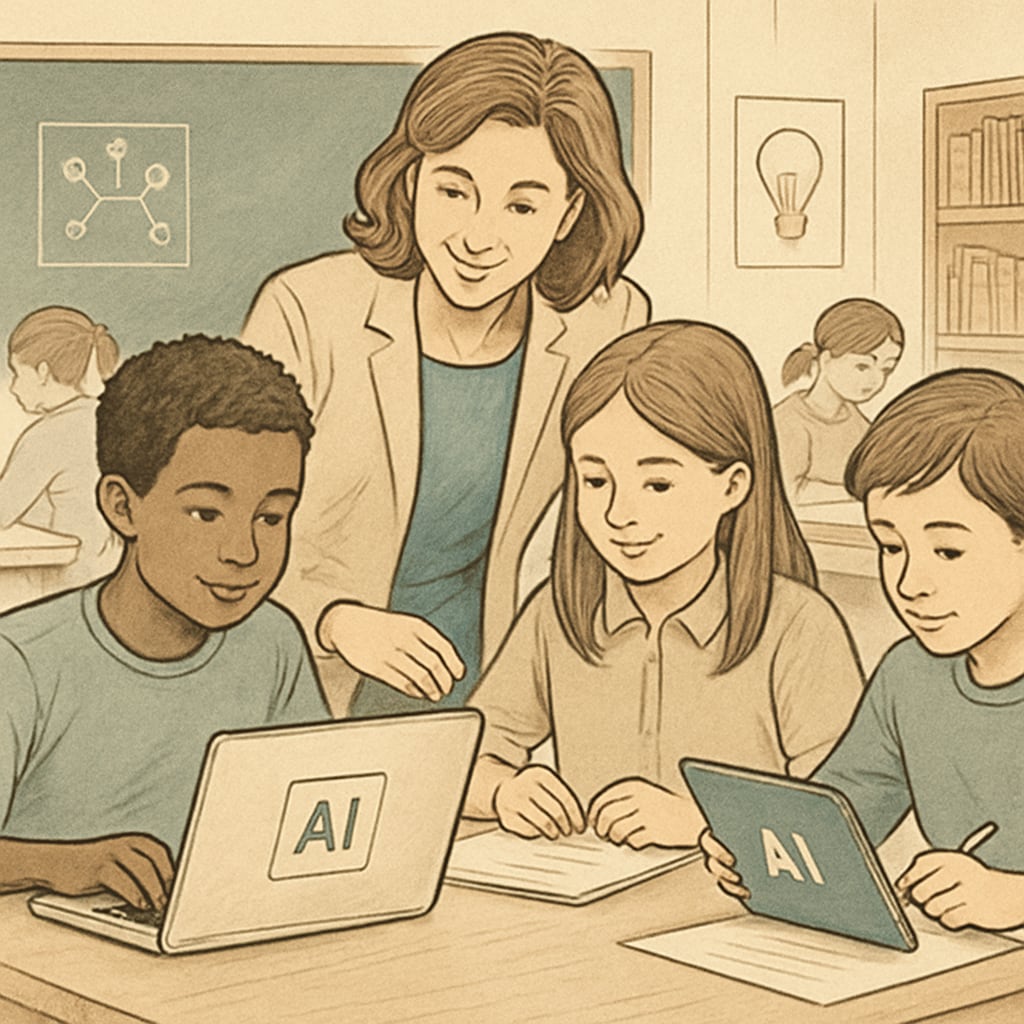Artificial intelligence (AI) is revolutionizing how we think about university education and future career paths. With the rapid evolution of machine learning models and automation, K12 education faces unprecedented challenges in preparing students for an increasingly uncertain job market. As traditional roles are redefined or replaced by AI, educators and policymakers must rethink the value of education in equipping students with skills that cannot be easily automated. This article examines how K12 education can evolve to address the demands of the AI-driven world and alleviate the growing anxiety surrounding the future of work.
Rethinking K12 Education in the Age of Artificial Intelligence
The AI revolution has not only disrupted industries but also raised fundamental questions about the purpose and structure of K12 education. For decades, the education system has largely focused on imparting knowledge and preparing students for university and specific career paths. However, as AI systems become capable of performing highly specialized tasks, the traditional approach to education risks becoming obsolete.
For example, professions in fields like data analysis, legal research, and even creative writing are increasingly being augmented by AI tools. As a result, schools must pivot from teaching static knowledge to fostering adaptable skills such as critical thinking, creativity, emotional intelligence, and problem-solving. These “human-centric” abilities remain challenging for AI systems to replicate and will likely form the foundation of future-proof careers.

Core Competencies for an AI-Driven Job Market
Preparing students for an unpredictable future requires a shift in focus from specific career training to broader skill development. Below are some of the key competencies that K12 education should prioritize to ensure students are equipped to thrive in an AI-driven job market:
- Adaptability: In a world where industries and roles are constantly evolving, the ability to adapt to new environments and challenges is critical.
- Digital Literacy: Understanding how AI systems work and how to interact with technology will be a fundamental skill for almost every profession.
- Critical Thinking: The ability to evaluate information, make decisions, and solve complex problems remains a uniquely human strength.
- Collaboration: As AI takes on individual tasks, teamwork and the ability to work across disciplines will become even more essential.
- Ethical Reasoning: With AI raising ethical dilemmas in areas like privacy and bias, students must understand the broader societal impacts of technology.
By embedding these competencies into the curriculum, K12 education can help students navigate the uncertainties of the future job market while building confidence in their ability to succeed.
Practical Steps for K12 Educators and Policymakers
To address the challenges posed by AI, K12 educators and policymakers can implement several practical strategies:
- Introduce AI Awareness Programs: Schools can integrate AI-related topics into the curriculum, enabling students to understand its capabilities and limitations.
- Promote Interdisciplinary Learning: Combining STEM (Science, Technology, Engineering, and Math) with arts and humanities fosters creativity and innovation.
- Encourage Lifelong Learning: Instilling a growth mindset helps students embrace continuous learning, a necessity in the AI age.
- Invest in Teacher Training: Educators need professional development opportunities to stay updated on AI trends and teaching methodologies.
- Strengthen Partnerships with Industry: Collaborations with tech companies can provide students with real-world insights and hands-on experience.
These steps will not only modernize education but also reassure parents and students that the system is evolving to meet the demands of the future.

Alleviating Education Anxiety in the AI Era
As the pace of technological change accelerates, anxiety surrounding the value of education and future career prospects is likely to grow. By proactively addressing these concerns, educators can build trust in the education system and its ability to prepare students for lifelong success. Open communication with parents, transparent curriculum updates, and showcasing success stories of AI-driven opportunities can help reduce this anxiety.
In addition, schools must emphasize resilience and mental health, ensuring that students are emotionally prepared to face the uncertainties of the future. This holistic approach will create well-rounded individuals who are not only academically capable but also emotionally intelligent and adaptable.
Ultimately, the integration of AI into education offers both challenges and opportunities. By focusing on developing human-centric skills and adapting to new realities, K12 education can play a transformative role in shaping a generation ready to tackle the unknowns of the future job market.
In conclusion: The impact of artificial intelligence on university education and career prospects is undeniable. However, through innovative strategies and a focus on adaptability, K12 education can empower students to thrive in an AI-driven world. The journey may be complex, but the rewards are immense—a future where students are not limited by uncertainty, but rather inspired by possibility.


